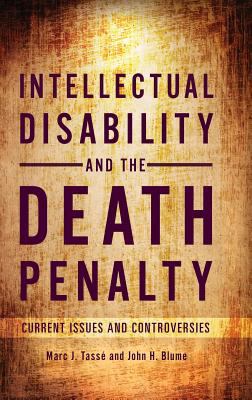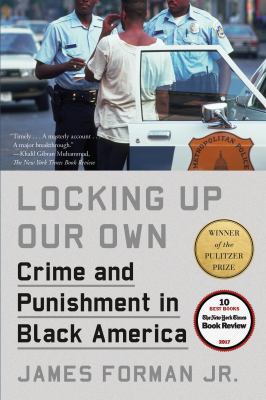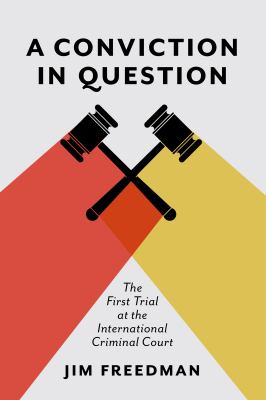Three on the Third is a monthly series in which we highlight three books new to the library collection. Summaries of the books will be provided along with shelf location and a link to the item in the catalog. This month we have three exciting new additions to our collection in the field of Criminology.

Intellectual Disability and the Death Penalty
by Marc J. Tasse & John H. Blume
This book documents the legal and clinical aspects of the issues related to intellectual disability and the death penalty. Intellectual Disability and the Death Penalty provides a comprehensive review of the legal and clinical aspects of the death penalty and intellectual disability; offers a detailed discussion of the Supreme court decision in Atkins v. Virginia as well as a review of court decisions since that 2002 ruling; details the diagnostic issues related to determination of intellectual disability, such as the assessment of intellectual functioning, adaptive behavior, and age of onset; and shares best practices in clinical assessment and important forensic matters that must be considered.
KF9227.C2 T37 2018
Catalog Link – Intellectual Disability and the Death Penalty

Locking up our Own
by James Forman Jr.
An original and consequential argument about race, crime, and the law today, Americans are debating our criminal justice system with new urgency. Mass incarceration and aggressive police tactics–and their impact on people of color–are feeding outrage and a consensus that something must be done. But what if we only know half the story? In Locking Up Our Own, the Yale legal scholar and former public defender James Forman Jr. weighs the tragic role that some African Americans themselves played in escalating the war on crime. As Forman shows, the first substantial cohort of black mayors, judges, and police chiefs took office around the country amid a surge in crime. Many came to believe that tough measures–such as stringent drug and gun laws and “pretext traffic stops” in poor African American neighborhoods–were needed to secure a stable future for black communities. Some politicians and activists saw criminals as a “cancer” that had to be cut away from the rest of black America. Others supported harsh measures more reluctantly, believing they had no other choice in the face of a public safety emergency. Drawing on his experience as a public defender and focusing on Washington, D.C., Forman writes with compassion for individuals trapped in terrible dilemmas–from the young men and women he defended to officials struggling to cope with an impossible situation. The result is an original view of our justice system as well as a moving portrait of the human beings caught in its coils.
HV9950 .F67 2018
Catalog Link – Locking up our Own

A Conviction in Question
by Jim Freedman
An engrossing narrative of the first case to appear at the International Criminal Court, A Conviction in Question documents the trial of Union of Congolese Patriots leader and warlord Thomas Lubanga Dyilo. Although Lubanga’s crimes – including murder, rape, and the forcible conscription of child soldiers – were indisputable, legal wrangling and a clash of personalities caused the trial to be prolonged for an unprecedented six years. This book offers an accessible account of the rapid evolution of international law and the controversial trial at the foundation of the International Criminal Court. A Conviction in Question examines the legal issues behind each of the trial’s critical moments, including the participation of Lubanga’s victims at the trial and the impact of witness protection. Through eye-witness observation and analysis, Jim Freedman shows that the trial suffered from all the problems associated with ordinary criminal law trials, and uses the Lubanga case to further comment on the role of international courts in a contemporary global context.
KZ1216.D95 F74 2017
Catalog Link – A Conviction in Question
